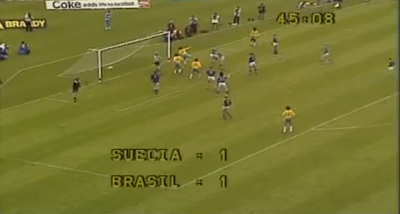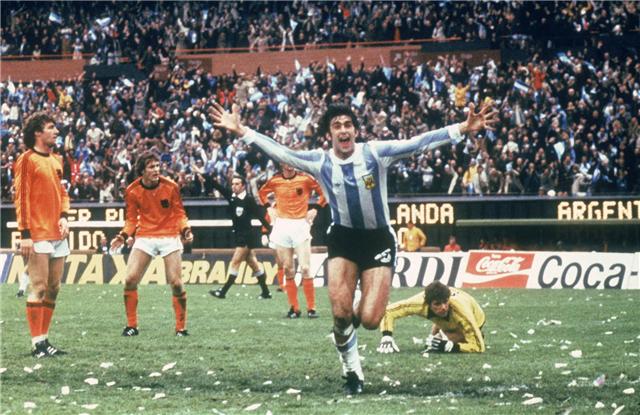Favourites for the competition included the host nation, Brazil, West Germany, Italy and The Netherlands. There were fears before the tournament of possible threats to players and the great Johan Cruyff refused to take part apparently due to a plot to harm his family if he did play.
Although therefore diminished, the runners up from four years previously again played some of the best football of the competition, especially in the second group stages. However, we are getting ahead of ourselves, so let us start from the beginning. The tournament kicked off on 1st June when the defending champions West Germany met Poland in a 0-0 draw in Buenos Aires. The Germans looked solid, but many of their stars from 1974 were gone (including Frank Beckenbauer and Gerd Muller) and the team lacked flair in many key areas.

The first group stages established Italy as a strong and skillful side and Brazil emerged as a much less physical team than the one who had muscled their way in West Germany four years before, showing more finesse this time. At this point, the name of the Welsh referee Clive Thomas comes into our tale. Brazil were playing Sweden in the first game of Group C and the score was 1-1 with 90 minutes almost up when they gained a corner. Nelinho was forced to re-spot the ball by the linesman before bending a right footed kick right onto Zico's head who powered it into the net. Brazilian celebrations were short lived, however, as Mr Thomas dramatically disallowed the "goal" stating that he had blown the full time whistle before Zico had met the ball. This result had repercussions later on in the group when Brazil finished as runners up to Austria on goal difference, so progressing to the same second round group as Argentina and a certain Peruvian team...

Peru had "shocked" Scotland in Group D with a 3-1 victory, but those of us who remembered how well they had played in Mexico in 1970 with their star player Teofillo Cubillas still present were not quite so surprised. The Netherlands ended Ally MacLeod's side's hopes in that Group's final game by losing only 2-3 so the Dutch ended up progressing into the second round.
In Group One, The Netherlands just pipped Italy to the top, courtesy of some truly spectacular goals from Arie Haan and Johnny Rep in particular. Group Two featured Argentina, Brazil, Poland and Peru. With one game left, Argentina needed to beat Peru by at least four clear goals. Peru had acquitted themselves in the first round rather well but had lost to Poland and Brazil in this group. However, a 6-0 victory to Argentina raised suspicions that certain pressure had been placed on the Peruvians to allow the home nation passage to the final which years later appeared to be confirmed. The Peru goalkeeper Quiroga (nicknamed "El Loco") had indeed shone in the first few games with frequent excursions to the half way line, but he seemed particularly below par in this notorious game.
And so, on 25th June, Argentina and The Netherlands met in Buenos Aires. It was an ill tempered affair with Mario Kempes putting the South Americans ahead just before half time and Dirk Nanninga equalising with 8 minutes remaining. With literally seconds left, Rob Rensenbrink hit the post and with that, Dutch hopes were dashed. Kempes and Bertoni confirmed Argentina as champions in extra time and the South Americans became World Cup winners for the first time. For The Netherlands, the golden age of the Seventies had come to an end, but as we shall see, a decade later they would end up as European champions with another great team.
